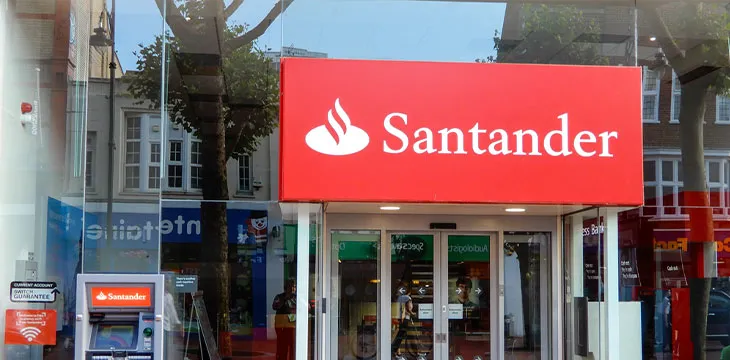|
Getting your Trinity Audio player ready...
|
U.K. customers of Santander Bank will be barred from sending real-time payments to digital currency exchanges, Reuters reports. The bank disclosed the information via email to its customers, citing an increased spate of fraud leveraging digital assets.
“In recent months we’ve seen a large increase in U.K. customers becoming victims of cryptocurrency fraud,” read the statement. “We want to do everything we can to protect our customers and we feel that limiting payments to cryptocurrency exchanges is the best way to make sure your money stays safe.”
It is unclear when Santander will make the ban operational, but pundits are pointing to a date in 2023. In the meantime, the bank will impose a series of restrictions for customers looking to transfer funds to digital asset exchanges starting on November 15.
Under the new regime, customers will be allowed to make payments to exchanges but will operate within a £1,000 ($1,123) limit per transaction and £3,000 ($3,453) in any rolling 30-day period. It is important to note that the new regime of restrictions does not impede the ability of users to withdraw funds.
Santander’s email to customers notes that the ban on payments to Binance still stands in line with the Financial Conduct Authority’s (FCA) designation of the digital currency exchange as a risky platform.
Several U.K. banks are toeing the same line as Santander in being tough on digital assets. High street banks like Lloyds, Nationwide, and HSBC do not tilt in favor of virtual currencies, and a recent study from Finder says 47% of U.K. banks do not support the new asset class.
Crime is keeping institutions out of the ecosystem
Apart from swinging volatility and uncertain regulations associated with digital assets, institutions have cited digital asset crime as part of the reasons for their hesitance in wading into the industry.
Since the start of the year, the industry has lost well over $2 billion to bad actors. The Nomad Bridge exploit and the Wormhole Bridge hack cost a combined $500 million to investors, while Axie Infinity and other non-fungible tokens (NFT) projects have recorded their own fair share of hacks.
Digital asset fraud is also increasing following the spike in romance scams known as “pig butchering” targeted at U.S. residents. The use of malware by bad actors has dampened the enthusiasm of institutional investors to invest in the industry.
Watch: The BSV Global Blockchain Convention panel, Blockchain Venture Investments: Driving Utility for a Better World

 07-15-2025
07-15-2025 





